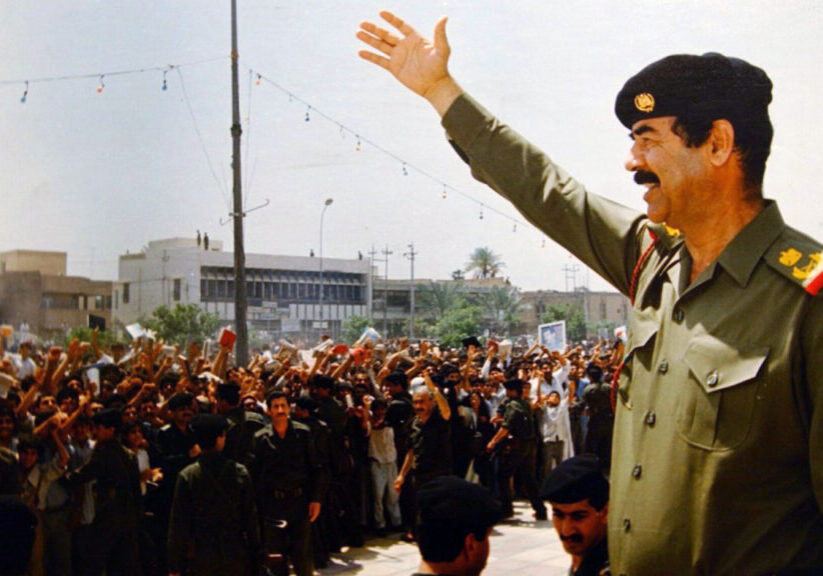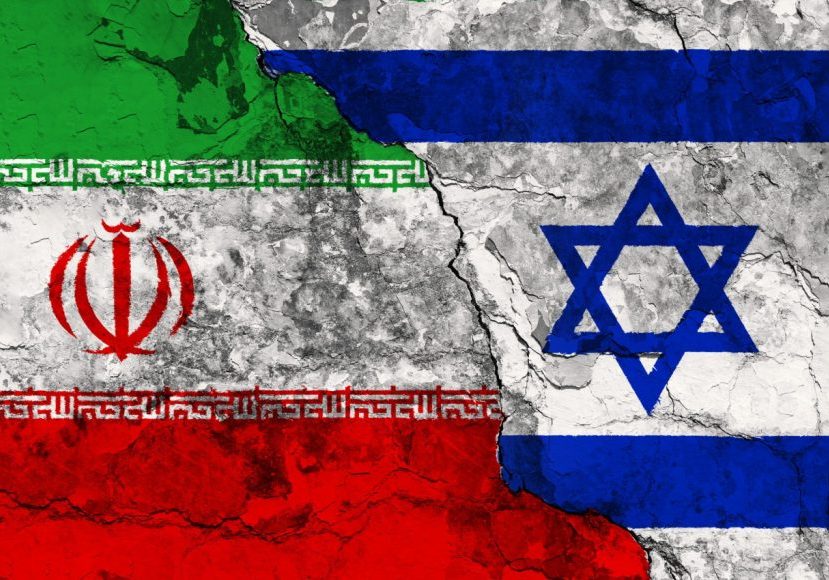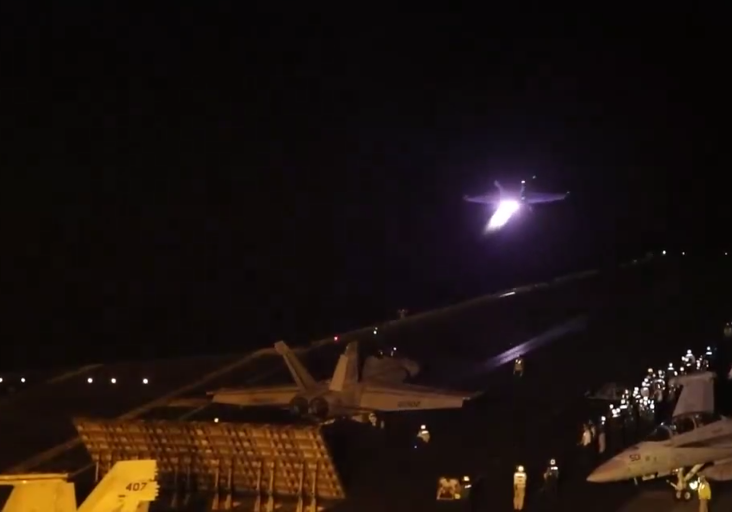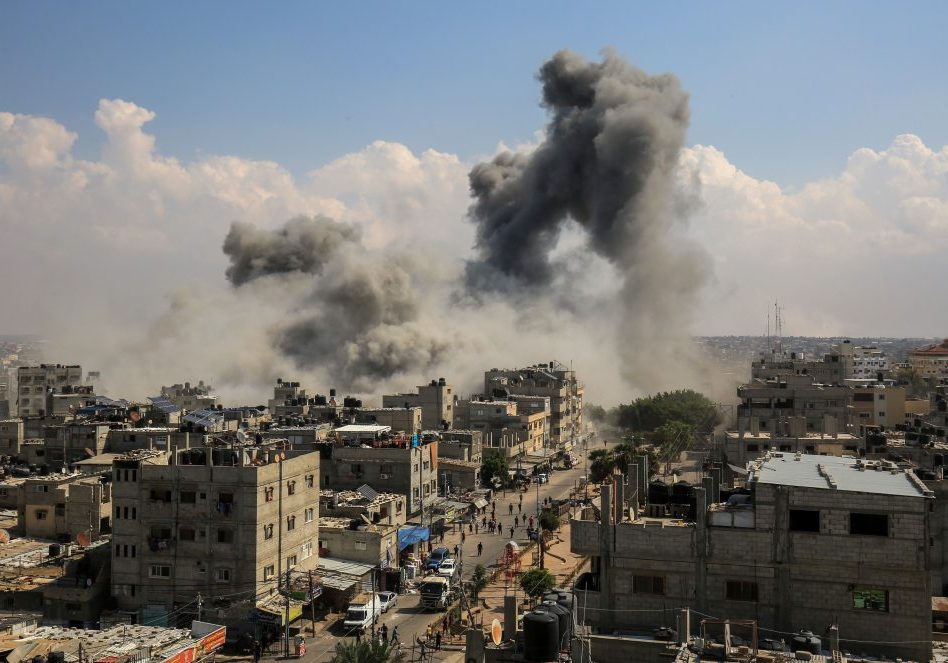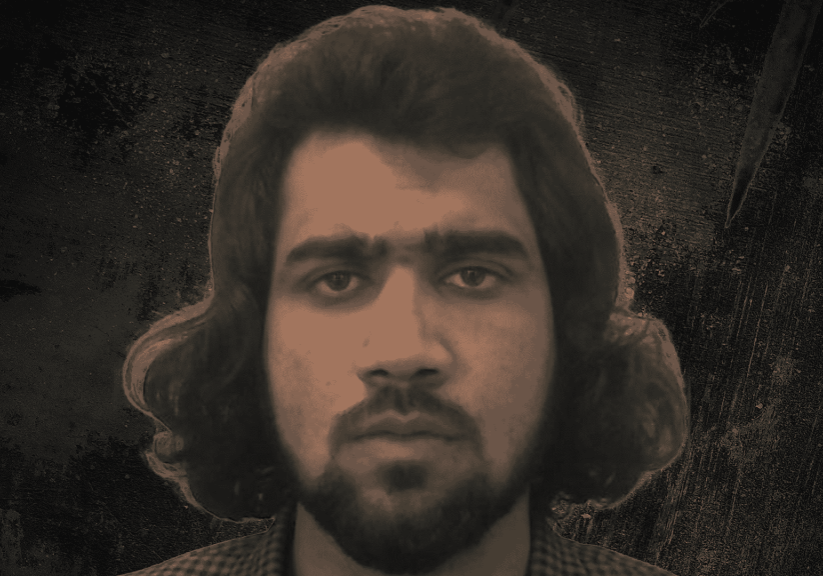Australia/Israel Review
The Evacuees
Jul 1, 2005 | Yehonathan Tommer
Disengagement and its discontents
By Yehonathan Tommer
Virtually everyone agrees that Israel’s evacuation of settlements in Gaza and the northern West Bank, scheduled to begin in early September, is going to be physically difficult, emotionally fraught and that a real risk of armed violence will be present. While majority Israeli opinion has generally favoured the move as part of PM Ariel Sharon’s policy of disengagment, opponents are vehemently against the move on religious, strategic, and ethical grounds, and have made it very clear that they will do everything in their power to make the process as difficult as possible. To understand exactly how difficult things are likely to get in coming months, The Review spoke to a number of leaders of the anti-disengagement movement in an effort to gauge both their worldview and their tactical intentions.
The “folly” of “conceding historically Jewish land”
Religious and secular opponents of the decision to evacuate Israeli settlements from the Gaza Strip and northern Samaria declare it an “absurd act of folly”. They claim that the disengagement policy is undemocratic and that it needlessly concedes inalienable Jewish historic land rights to a hostile Palestinian entity. Withdrawal, they argue, endangers the state’s continued survival by encouraging terrorist militias to intensify irredentist attacks against Israeli cities and towns. These dissidents promise to respond with a popular struggle of non-violent civil disobedience.
Knesset Member Professor Aryeh Eldad of the rightist National Union believes that Israel’s right to settle the territories derives from religious and historic claims and not from United Nations resolutions. Eldad is his party’s outspoken secular member who recently moved his family from Jerusalem to San-or in solidarity with the struggle against disengagement. San-or is one of the four northern West Bank settlements earmarked for evacuation along with the 21 communities in Gaza slated for removal.
The Israeli-Jewish narrative, asserts Eldad, is both historically and ethically justified. He argues that “the UN partition resolution of November 29, 1947 stemmed from the recognition of the Jewish People’s rightful religious and historic claims to the land of Israel [Eretz Israel].” The nations that voted for partition did not see Zionism as a colonialist phenomenon by immigrants from European countries who found and took control of any land, but as a recognition by the Christian countries among them of the Jewish religious connections to Eretz Israel. “That is why today we see 80 million Christian evangelists confirming that Eretz Israel belongs to the Jewish people. They are believers and understand that in their Bible, it is written that God promised the land of Israel to the Jewish people.”
The Arabs rejected the partition compromise and the armies of five Arab states invaded the nascent Jewish state, kindling an armed conflict has lasted to this day, said Eldad. Israel’s right to settle anywhere in the land of Israel cannot be a matter of legal dispute by any United Nations Agency or members of the international community. “As long as the Palestinians reject Israel’s right to exist, their irredentism reinforces Israel’s moral and legal right to settle anywhere in Eretz Israel,” he declared.
As to a Palestinian right to statehood, Eldad said, “they should seek national self determination in Jordan where they constitute 70% of the local population. There is no room for two states in Eretz Israel. If the Palestinians create a state west of the Jordan [River], it will be irredentist and for years to come will pose an existential threat to the State of Israel. It will seek to inherit Israel and replace it as a Jewish state with a different state and if the Palestinians become a majority [together with the Arabs of Galilee] it will be a Palestinian State.”
Eldad noted comments by recently retired IDF Chief of Staff Moshe Ya’alon that Yasser Arafat’s successor, Mahmoud Abbas (Abu Mazen), has not given up the ‘right of return’. Summing up the successes in Israel’s four year warfare against the Palestinians and the challenges ahead, Ya’alon said, “On the Palestinian side we still find a viewpoint thinking in terms of the phased doctrine… this is not a symbolic right of return but a claim to be realised — to return to the houses, to return to the villages. The implication of this is that there will not be a Jewish state here…This is a situation of reverse asymmetry. The state of Israel is ready to give the Palestinians an independent Palestinian state but the Palestinians are not ready to give us an independent Jewish state…That is why every agreement that will be made is the point of departure for the next conflict.”
West Bank spiritual leader Rabbi Shlomo Aviner of Beit El, north of Ramallah, takes a similar view. The historic rights of a people exiled from its land cannot be given away to a conqueror, he contends. To do so would violate fundamental principles of justice. Aviner avoids arguments based on biblical citations of God’s pledge to grant the Promised Land to Israel’s Patriarchs. Instead, the Rabbi argues that historical continuity rather than rabbinic discourse provides the foundation for the Zionist idea. “One cannot always forgive the aggressor and ask the victim [Israel and the Jewish People] to give in to the aggressor to appease his threats,” said Rabbi Aviner. “We were evicted from our land [by the Romans] who took it from us and it [was subsequently] handed on from conqueror to conqueror.” He continued, “this land has remained our land and we have never forsaken our right to it. We fought to hold on to our right against the Muslims and then the Christians [Crusades] when they tried to take it away from us. We have returned to our land and nothing is more righteous than this.”
If the demographic-democratic factor had operated in 1947, the State of Israel would never have come into being, said Rabbi Aviner. “It has become an issue because of our irresoluteness. If we are determined and say this land is ours and we will never budge from it, the Arabs will search their souls. Those who want to become citizens of Israel will stay here and those who want a state of their own can choose between 22 Arab states and a country 500 times Israel’s size.” Aviner went on to say that “our incessant irresoluteness creates the Arab presence and indirectly encourages Palestinian terror. Our willingness to leave these areas [Gush Katif and northern Samaria] creates unrelenting Arab pressure upon us to leave.”
“Undemocratic” and “immoral” decision
The dissidents also argue that the parliamentary process by which the disengagement decision was made in the Knesset was both undemocratic and immoral They are traumatised by what they see as Prime Minister Ariel Sharon’s inexcusable treachery. They consider Sharon to be a renegade who betrayed the same Greater Israel settlement movement that he had personally led for more than 30 years. “Sharon’s policy is the opposite of everything Sharon said two and three years ago,” said Aryeh Eldad. “Nothing has changed, namely: the Arabs still want to destroy Israel, there can be no compromise with terror and they must be prevented from acquiring a state.”
Sharon breached his own promise to hold a national referendum on the question, and he forced a majority vote in Parliament through “unfit and unscrupulous party manipulation,” said Eldad. Eldad also accused the Prime Minister of getting his way through threats to “withhold pre-selection of Likud dissidents and through bribes of high ministerial office.” Even now, Sharon is pursuing an “immoral policy,” said Eldad and Aviner. In support of this assertion they cited a June survey in Yediot Aharonot by pollster Mina Tzemach pointing to declining public support for the Gaza disengagement: (53% in favour, 38% opposed, relative to a February poll which showed 69% in favour and 27% opposed).
Existential dangers of “appeasement”
Disengagement dissidents warn of the existential dangers for Israel from a policy of appeasement for the day after Israel withdraws from the designated areas.
In a June interview with Ari Shavit of Ha’aretz, outgoing Israeli Chief of Staff Moshe Ya’alon said, “You have to understand, a fence [the near-completed security barrier separating Israel from the Palestinian areas along most of the pre-1967 ceasefire lines] does not solve the problem of terrorism. The fence is an important means in the ability to prevent infiltration but the ultimate means is the ability to get to the terrorist in his bed.” But for this the Israel Defence Forces (IDF) needs freedom of action and control of territory, which would both be restricted once the areas are handed to the Palestinian Authority, said Ya’alon.
It all depends on whether the Palestinians view Israel’s withdrawal as “an act of choice or an act of flight. If they consider it flight they will continue to come after you,” said Ya’alon. “Over the years, the Palestinians have been trying to show us that the territory we leave becomes quiet. I have no doubt that they will have an interest in demonstrating that after the pullout from Gaza there will be a period of quiet there. You left Gaza, you get quiet. You will leave Judea and Samaria, you’ll get quiet. Leave Tel Aviv and things will be completely quiet.”
They will resume suicide bombings and Qassam rocket firing [into Israeli cities and towns] which both bypass Israeli military might and strike at civilian society, said Ya’alon. “The disengagement will not bring stability but will oblige Israel to be confrontational.”
Likud Knesset Member and retired Major-General Ehud Yatom expressed similar misgivings. If disengagement is not anchored in an agreement defining reciprocal obligations between Israel and the Palestinians, then it amounts to a unilateral Israeli withdrawal. “What’s all this about coordination?” said Yatom. “We’re giving them territory as a present and the Palestinian Authority is agreeing to accept it. What guarantees are they giving to ensure that the day after disengagement they will comply with their obligations under the Road Map and disarm their terrorist infrastructures?” Yatom continued: “The Palestinians have won a total victory over us. After four years of terrorist warfare, they have learnt that they can evict us by force. The terror has not ended and if we continue to flee from the territories, they will continue to pursue us.”
Taking issue with more militant dissidents, Yatom rejects all forms of non-violent civil disobedience and believes that parliamentary action is more effective. Still hopeful of halting the plan, Yatom said that an emergency draft law has been tabled in the Knesset to suspend all further implementation of the Compensation-Evacuation Law and lawmakers are being solicited to support an early dissolution bill for fresh elections. A public information campaign also is being launched along with home meetings and mass rallies around the country to increase public pressure.
Evacuation scenarios
The evacuation may be smoother than settler attitudes indicate, though it is likely to be accompanied by mass Israeli solidarity demonstrations and delicate military operations to dismantle one or two “Stalingrads” (San-or) declared by dissident zealots.
Amidst conflicting reports some 50% of the families (according to Disengagement Authority figures) are privately seeking government compensation and alternate housing under the settler evacuation and compensation law of June 2004 (whose legality was upheld in an appeal rejected by a majority of 12 to 1 of the Israeli Supreme Court bench last month).
Another confused signal which has caused “deep consternation” in religious settlement circles unexpectedly came from former Sephardic Chief Rabbi Mordechai Eliyahu (known for his hardline rejection of territorial concessions) in an interview to the ultra orthodox weekly HaMishpacha (The Family) where he counselled soldiers “not to refuse army orders” to evacuate settlements. Namely, don’t refuse orders once they are given, but when you get there, don’t necessarily carry them out.
“Many soldiers have asked me what they should do and I responded that it is preferable for believing Jews to go among the houses and do it [evacuate the settlers] while crying, in tears and with a broken heart, than for all kinds of evil people to come and joyously remove the settlers from their homes and toss them roughly into vehicles,” he said. “We must not get into a situation in which one Jew raises his hand against another.”
Eliyahu also said that he opposed blocking roads and confrontations with police officers. “We are obligated to protest but we must maintain the principles of Torah and courtesy. How will shouting and quarrelling at intersections help when one Jew hits another?”
Settlers must neither leave their homes willingly nor forcibly protest their removal, he said, “Recite chapters from the Psalms and spill out your heart to our Father in heaven so that he will take pity on his children and lift the decree, but don’t help those who come to evacuate you and don’t forcibly oppose them either.”
Alarmed at the possibility of persons being shot or seriously injured in the heat of scuffles and volatile emotions, Rabbi Aviner also urged soldiers not to refuse orders but stopped short of advocating passive resistance. “We don’t want civil wars or the use of physical or verbal violence or the language of hatred, because we are brothers,” he says.
On the other hand, Jews should not voluntarily choose to live as a minority under Palestinian rule, once the evacuation is completed. “The ideal is to live in the State of Israel and as we have such a state, I would not want to live anywhere else,” said Aviner.
There will be no violence on the settlers’ part, added Eldad. He takes his cue from India’s Mahatma Gandhi, Martin Luther King and the mid-19th century American anti-slavery poet and philosopher Henry D. Thoreau, who advocated acts of widespread non-violent civil disobedience to achieve their political goals. “We are merely adopting their methods,” Eldad said, listing nationwide demonstrations, sit-down strikes, airport, railroad and road traffic disruptions and government office lockouts as legitimate courses of action.
Meanwhile a forum of right wing groups is to coordinate anti-disengagement demonstrations during the evacuation and issue operational directives, according to parliamentarian and settler leader Effi Eitam.
Ugly confrontations are also envisaged at militant communities as evacuation forces enter barricaded settlements to haul protesting residents and supporters from homes and public places.
No evacuation under fire
“The disengagement plan will be implemented according to the government’s timeline and only a decision by the political echelon can halt its implementation,” new IDF Chief of Staff Dan Halutz said. “This is a national mission based on a democratic decision and it will be implemented with typical military decisiveness and appropriate public sensitivity. We are not going to war here. This is not the motto. There will be no victors and no vanquished. We will display patience and tolerance and it [the evacuation] will take as long as it takes,” Halutz said, appealing for cooperation to responsible religious and community leaders.
“However, there will be no evacuation under fire,” warned Halutz, in a message transmitted by deputy Chief of Staff Major General Moshe Kaplinksi in a first of further meetings with Palestinian Deputy Minister of Interior for National Security Affairs, Gen. Jamal Abu-Zihad, to coordinate security arrangements and establish joint working procedures. “But if the Palestinians open fire upon Israeli targets, the IDF will take steps necessary to stop the attacks and proceed with the disengagement as planned,” Halutz said.
Six IDF disengagement brigades comprising some 6,000 regular servicemen and women have been formed to replace Israeli police units relieved of routine law enforcement duties inside Israel.
According to the media report, starting July 10, all entry to the communities to be evacuated will be blocked and no Israeli citizen will be allowed into the area from August 1. The document attributed to Brigade 101, which will be responsible for maintaining law and order in northern Samaria, further states that with evacuation starting September 4, forces will be deployed to respond to settler riots and other disruptions and to foil attempts at civil disorder by Israelis infiltrating Palestinian villages or evacuated settlements or terrorists seizing control of them.
The IDF will maintain continued pilotless aerial surveillance of the area, and in all contacts with Israeli civilians, soldiers will carry their rifles slung over their shoulder and use them only in cases of extreme personal danger.
All police leave has been cancelled until further notice. Two police centres with a combined manpower of some 7,200 officers are to be stationed outside the Gaza Strip and they will work 12-hour shifts around the clock.
“We are prepared for all possible scenarios and will act accordingly,” Israel police disengagement spokesman Colonel Avi Zelba said, declining to give further details.
Tags: Iraq


